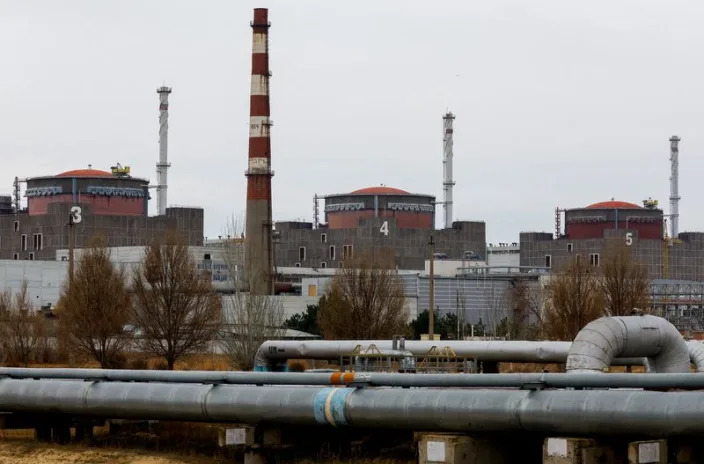
A view shows the Zaporizhzhia Nuclear Power Plant outside Enerhodar
Thu, January 5, 2023
By Timothy Gardner
WASHINGTON (Reuters) - The head of Holtec, a private U.S. nuclear power company working in Ukraine, said Russia's occupation the Zaporizhzhia nuclear plant is a serious hit to the future of clean energy.
Russia took over the plant, Europe's biggest, soon after its Feb. 24, 2022 invasion of Ukraine. The plant has suffered shelling and cut power lines during the war, raising concerns of a nuclear catastrophe. Russia and Ukraine blame each other for the shelling.
Kris Singh, the chief executive of New Jersey-based Holtec International said in an open letter published on Thursday that Russia President Vladimir Putin's military occupation of the plant should be viewed as a "serious blow to humanity's clean energy future."
Singh said it has "normalized a new horrendous instrument of war".
Nuclear power backers, including the Biden administration, say the electricity source is critical to fight climate change, because it generates virtually emissions-free power. Nuclear's critics say it's too costly and building new plants is too time-consuming to do much to curb climate change, though some acknowledge that current reactors should keep running if they operate safely.
In Ukraine, Holtec works on storage of spent nuclear fuel and wants to build next-generation small modular reactors there.
Russia's war in Ukraine and the taking of Zaporizhzhia could be costly for its international nuclear business. Last year a Finnish-led consortium scrapped a contract for Russia's state-owned Rosatom to build a nuclear power plant in Finland, citing delays and increased risks due to the war in Ukraine.
The Hanhikivi 1 project would have increased Finland's dependency on Russia for its energy.
Singh urged the U.N.'s nuclear watchdog, the International Atomic Energy Agency, to call on its member states to agree resolutions that make attempts to interfere with peaceful generation of nuclear power "punishable by expulsion of the aggressor state."
The IAEA did not immediately respond to a request for comment.
No comments:
Post a Comment